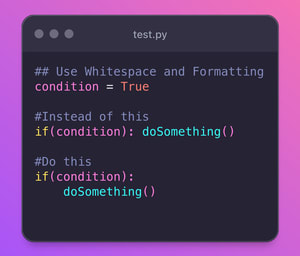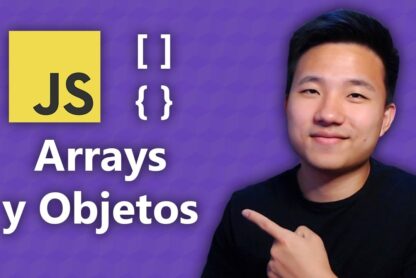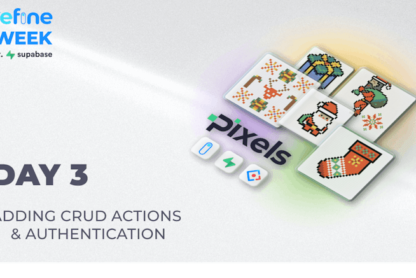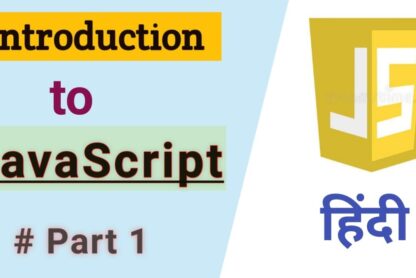Always code as if the guy who ends up maintaining your code will be a violent psychopath who knows where you live.😂
~ John Woods
As a programmer, writing clean and maintainable code is like doing laundry – it’s not always fun, but it’s essential. Not only does it make your job easier, but it also helps others understand your code easily. In this post, I will share ten free tips that will help you write clean and maintainable code, even if you’re new to programming.
🏷 Give Your Code A Name Tag!
The point is, it helps others understand what your code does and makes it easier to read. Always use descriptive names for your classes, methods, and variables. Naming conventions do matter when writing code. Use the appropriate case style or naming conventions available when writing code. So, instead of using vague names like x and y, you could use names like numberOfStudents and totalSales. It may seem like a small thing, but it can make a big difference in the readability and maintainability of your code.
👌🏾 Keep Your Functions/Methods Short and Simple!
Functions/methods should be structured just like paragraphs in a book – concise and focused on one topic. Paragraphs that cover more than one topic are like a jumbled mess of ideas – they’re difficult to comprehend. It’s important to keep them short and to the point, and a good rule of thumb is to limit them to one idea or action. Think of them as building blocks of code!
✍🏾 Comment Your Code!
Comments are like little notes that help you and others understand your code. They should explain why the code exists, not what it does. They should be concise, and you should avoid commenting on obvious things. So instead of this, // set value to 5, you could use // set the initial value to 5 to avoid null values. Simple right!
🍀 Use Whitespace and Formatting
The use of whitespace and formatting can make reading your code much easier. Indentation is critical, and it’s essential to be consistent with it. Use blank lines between functions and classes to make your code more readable. Choose a formatting style and stick to it throughout your codebase. Think of it like organizing your own closet!
📦 Choose Your Data Structures Carefully
Choosing the right data structures is like choosing the right tool for the job. Use the appropriate data structure for each task, and it can make your code more efficient and more readable. Think of it like choosing the right ingredient for your recipe! So, instead of using an array to store key-value pairs, you could use a dictionary or a hash table.
🔢 Avoid Magic Numbers and Strings
Avoid hard-coding values that have no explanation. Use constants or enums instead, and it will make your code more readable and maintainable. Think of it like using labels instead of numbers! So, instead of using if (status == 1) to check if a task is complete, you could use if (status == TASK_COMPLETED).
🚫🔁 Don’t Repeat Yourself (DRY)
If you find yourself copying and pasting code, that’s a sign that you need to refactor it and create a function instead. Think of it like reusing your favorite ingredients to make a delicious meal! So, instead of repeating the same code in multiple places, you could create a function that does the job once and call it whenever you need it.
🎯 Test Your Code
Testing is like playing hide and seek with your code. Write tests for your code, and it will help you catch bugs early on. Use test-driven development (TDD) if possible, and it will make your code more robust. Think of it like playing a game of hide and seek, but with code! So, instead of waiting for a user to report a bug, you could write tests that simulate different scenarios and catch the bugs before they reach the user.
🗺️ Make Your Error Messages as Helpful as GPS Directions
Error messages should be like GPS directions – descriptive and helpful. They should explain what went wrong and how to fix it. Avoid generic error messages that provide no information. Think of it like giving someone directions! So, instead of using Error: Invalid input, you could use Error: The input should be a positive integer.
📚 Keep Learning
Finally, keep learning and improving your skills. There is always something new to learn, and it will make you a better programmer. Attend conferences, join communities, read blogs and books, and try new things. Think of it like exploring a new world! So, instead of sticking to the same programming language and tools, you could try learning a new language or framework.
Conclusion
In conclusion, writing clean and maintainable code is essential. Use these ten tips to help you write better code, even if you’re new to programming. Remember to keep learning and improving your skills, and you will become a better programmer. Happy coding devs!






